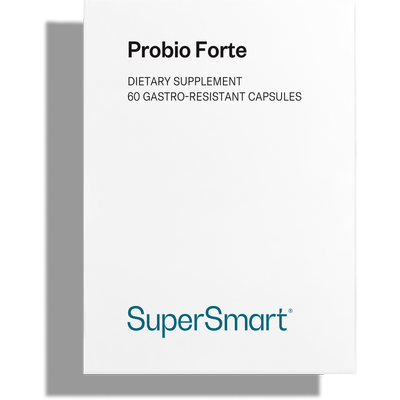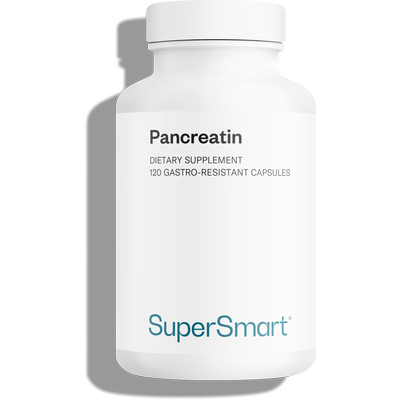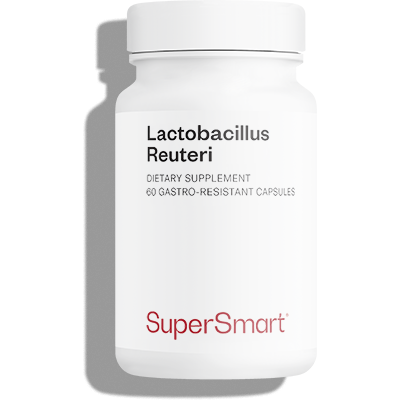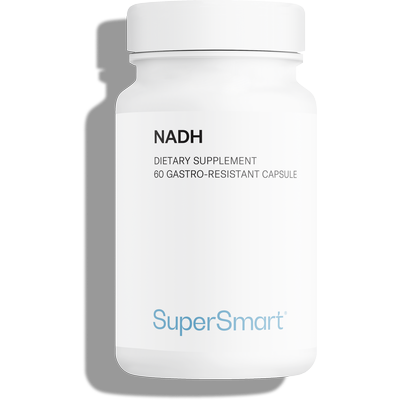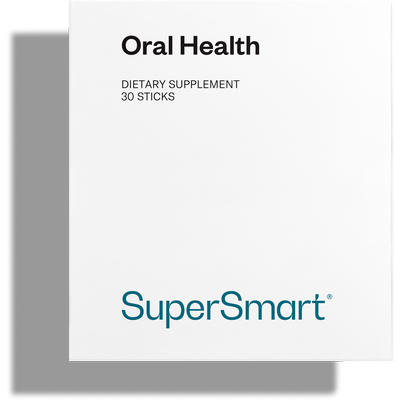Which foods and supplements should be kept in the refrigerator?
Let’s get rid of any misconceptions with a list of foods and dietary supplements that either do or don’t need to be refrigerated.

Which foods should be kept in the fridge and which in the cupboard?
Foods to keep refrigerated
Perhaps it’s obvious but certain foods definitely need to be kept in the fridge (at a temperature normally between 0° and 6°C), and only for a maximum period which depends on the type of food and whether it’s raw or cooked:
- meat;
- fresh fish;
- fresh pasteurised milk.
In addition, foods which aren’t preserved in anything should be kept in the fridge after opening: pasteurised long-life milk, canned food once opened, fruit juices, soups, prepared vegetables, etc.
With regard to eggs, which are admittedly not kept in the chiller cabinet in supermarkets, according to the scientific opinion issued by the European Food Safety Agency (EFSA) in July 2014, “keeping eggs in the fridge is the only way to reduce the increased risk of infection due to extended storage. However, if the sell-by and best-before dates are extended for more than three weeks, the risk increases even if the eggs are refrigerated in shops”. (1)
As for butter and cheese, it comes down to personal taste, preference and habit, as well as external temperature: for optimal preservation, especially in summer, it’s best to keep them refrigerated. In winter, butter and cheese can be kept at room temperature in a suitable container (butter dish, cheese preserver).
Foods that shouldn’t go in the fridge
Conversely, certain foods will lose their flavour, texture or nutritional qualities if kept in the fridge:
- potatoes;
- tomatoes;
- garlic;
- avocados;
- chocolate;
- melon and watermelon;
- cucumber;
- basil;
- bread.
And some foods and condiments which are commonly kept in the fridge can definitely be stored in the cupboard:
- jam and marmalade, even once opened;
- pickles;
- mustard (it’s stronger in the fridge and milder at room temperature – the crust it forms is not a health risk);
- ground coffee.
Dietary supplements: which ones should be refrigerated?
Most dietary supplements are dry products!
Generally speaking, supplements do not need to be kept in the fridge. They are produced from dry extracts and/or oils, which means they have no special storage requirements.
The only recommendation is to keep them in a cool, dry place, away from light to prevent any deterioration in quality.
The nature of some supplements, however, (live organisms in particular), means they keep better and longer when refrigerated.
For probiotics, always opt for the fridge
Like the baker’s yeast you buy in sachets, probiotics are live microorganisms that have been ‘deactivated’ by a process of dehydration. But in this form, probiotics and yeasts can be subject to significant oxidative stress (2).
To reduce this risk, probiotics may be packaged in hermetic blister packs to protect them from oxygen. Compounds such as sorbitol and inulin may also be added to the probiotic formulation for enhanced preservation (3).
Finally, they should ideally be stored in refrigerated conditions prior to dispatch (as SuperSmart does for those probiotics that need it) as well as once they reach you.
In terms of our product range, refrigeration is particularly recommended for the following probiotics:
- Probio Forte (DR Caps™ delayed release, minimal humidity, inulin, airtight blister pack, freeze-dried, refrigerated storage prior to dispatch).
- Candalb (DR Caps™ delayed-release, minimal humidity, inulin, airtight pot, freeze-dried, refrigerated storage prior to dispatch).
- Oral Health (individual sticks, sorbitol, freeze-dried, airtight packaging, refrigerated storage prior to dispatch).
- Lactobacillus reuteri (DR Caps™ delayed-release, minimal humidity, airtight pot, freeze-dried, refrigerated storage prior to dispatch).
Storing aloe vera gel
Obtained from the pulp of the succulent of the same name, aloe vera gel is rich in healthy fatty acids, sterols, organic acids, phenols, etc, and thus offers numerous benefits for health, including the skin (4).
Home-made aloe vera gel is highly susceptible to oxidation and can only be kept for around 10 days in the fridge, or a little longer if you add vitamins E, C or a few drops of essential oil of grapefruit seed.
The aloe vera gel offered by SuperSmart (Organic Aloe Vera), contains citric acid, potassium sorbate and sodium benzoate for maximum storage duration and can therefore be kept in the fridge for a month after opening.
Is it best to keep DIM supplements cold?
A molecule produced when the body digests cruciferous vegetables, Di-indolyl methane (DIM) is a natural metabolite also subject to oxidative stress and should thus be stored at a temperature of between 2° and 8°C (5).
So make sure you refrigerate any supplements that contain DIM, such as Natural Anti Aromatase Support, an enhanced formulation for combatting excess oestrogen production, containing a synergistic combination of DIM, chrysin, extracts of agaricus, naringin, genistein, etc.
Note: it’s completely normal for DIM to turn pink over time – this does not affect its benefits.
Enzymes and refrigeration: a case-by-case approach
Enzymes are proteins which serve as catalysts of certain chemical reactions in the body.
Whether acting as digestive enzymes (which play a role in the digestion of macronutrients and micronutrients) or as metabolic enzymes (which regulate metabolic pathways), the kinetics of thermal denaturation of many enzymes can be significant (from a few hours’ to a few days’ half-life) – even at moderate temperatures such as 20°C.
It’s therefore advisable to keep enzymatic preparations in the fridge (at a temperature of around 3° or 4°C) which will usually ensure stability for several months.
This is the case, for example, with the following supplements:
- Catalase: a natural metabolic enzyme, production of which declines with age, catalase maintains hair pigment, thus delaying the appearance of grey hair (6);
- Pancreatin: pancreatic juice contains three types of digestive enzyme: trypsin, chymotrypsin and pancreatin, which are involved in the digestion of proteins and fatty acids (7);
- NADH: nicotinamide adenine dinucleotide is an important cofactor of a number of the body’s enzymatic reactions. It is involved in particular in the production of L-Dopa, the precursor of dopamine (8).
SUPERSMART ADVICE
References
- https://www.efsa.europa.eu/fr/press/news/140731
- RASCÓN, M. P., HUERTA-VERA, K., PASCUAL-PINEDA, L. A., et al.Osmotic dehydration assisted impregnation of Lactobacillus rhamnosus in banana and effect of water activity on the storage stability of probiotic in the freeze-dried product. Lwt, 2018, vol. 92, p. 490-496.
- MIREMADI, Fatemeh et SHAH, Nagendra P. Applications of inulin and probiotics in health and nutrition.
- VOGLER, B. K. et ERNST, E. Aloe vera: a systematic review of its clinical effectiveness. British journal of general practice, 1999, vol. 49, no 447, p. 823-828.
- KAMAL, A. et QURESHI, A. Ali. Syntheses of some substituted di-indolylmethanes in aqueous medium at room temperature. Tetrahedron, 1963, vol. 19, no 4, p. 513-520.
- CLAIBORNE, A. L. Catalase activity. In : CRC handbook of methods for oxygen radical research. CRC press, 2018. p. 283-284.
- AKESON, Walter R. et STAHMANN, Mark A. A pepsin pancreatin digest index of protein quality evaluation. The Journal of nutrition, 1964, vol. 83, no 3, p. 257-261.
- WU, Hong, TIAN, Chunyong, SONG, Xiaokai, et al.Methods for the regeneration of nicotinamide coenzymes. Green Chemistry, 2013, vol. 15, no 7, p. 1773-1789.
Keywords
56 Days
Very happy with the order and the…
Very happy with the order and the prompt team's response to an identified issue with my order.
KUQI Fatmir
63 Days
15 + years as a customer
I have been using their products for over 15 years as I find both the quality and pricing excellent.
Del Chandler
65 Days
Good quick delivery
Good quick delivery
Timothy O Shea
66 Days
Good service
Good communication following order. Product came within the time frame and was well packaged. The only confusing thing I found was in checking out. For some reason it is not clear how to do so and the current system should be improved.
Joe O Leary
75 Days
Simple and fast.
Simple and fast.
Nina
75 Days
Great product was definitely what is…
Great product was definitely what is says and arrived on without issue
customer
81 Days
I love reading those product facts on…
I love reading those product facts on Supersmart.com. Effective health products making permanent changes to my blood-work results and testes. However, I also have to order capsules from other websites.
NORDGULEN Olav
84 Days
Great products
Great products Very easy to choose, to order… and to get at home
Federica mastrojanni
87 Days
Service rapide et bons produits
Service rapide et bons produits
customer
88 Days
Good products and fast delivery
Good products and fast delivery
Trusted
93 Days
Does what it says on the can
I believe in this product Made to highest standard The ordering process is straightforward Delivery time prompt Excellent product, excellent service Happy customer ❤️
Sheba Kelleher
98 Days
Excellents produits
Excellents produits. Rien à dire si ce n'est qu'ils sont très chèrs.
MJS_France
100 Days
Very good supplement
Very good supplement
Glaveash
101 Days
Supersmart supplements are really…effective
Supersmart supplements are really effective and have helped me and family members and friends to improve their health including some of us with severe health problems including some with no existing medical treatment.
Anne Georget
102 Days
SuperBig Supersmart
SuperBig Supersmart
Pierre

